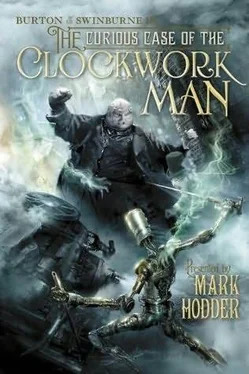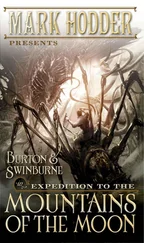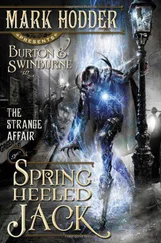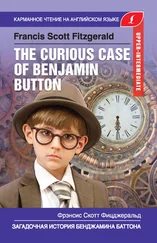Mark Hodder - The curious case of the Clockwork Man
Здесь есть возможность читать онлайн «Mark Hodder - The curious case of the Clockwork Man» весь текст электронной книги совершенно бесплатно (целиком полную версию без сокращений). В некоторых случаях можно слушать аудио, скачать через торрент в формате fb2 и присутствует краткое содержание. Жанр: Детективная фантастика, на английском языке. Описание произведения, (предисловие) а так же отзывы посетителей доступны на портале библиотеки ЛибКат.
- Название:The curious case of the Clockwork Man
- Автор:
- Жанр:
- Год:неизвестен
- ISBN:нет данных
- Рейтинг книги:3 / 5. Голосов: 1
-
Избранное:Добавить в избранное
- Отзывы:
-
Ваша оценка:
- 60
- 1
- 2
- 3
- 4
- 5
The curious case of the Clockwork Man: краткое содержание, описание и аннотация
Предлагаем к чтению аннотацию, описание, краткое содержание или предисловие (зависит от того, что написал сам автор книги «The curious case of the Clockwork Man»). Если вы не нашли необходимую информацию о книге — напишите в комментариях, мы постараемся отыскать её.
The curious case of the Clockwork Man — читать онлайн бесплатно полную книгу (весь текст) целиком
Ниже представлен текст книги, разбитый по страницам. Система сохранения места последней прочитанной страницы, позволяет с удобством читать онлайн бесплатно книгу «The curious case of the Clockwork Man», без необходимости каждый раз заново искать на чём Вы остановились. Поставьте закладку, и сможете в любой момент перейти на страницу, на которой закончили чтение.
Интервал:
Закладка:
“Shut your trap!” came the squawked response, then: “Message from the beautiful and magnificent Herbert Spencer. The Claimant, Kenealy, Jankyn, Bogle, and moronic Lord Lushington are holdin’ weekly seances in the bloody billiard room. They've been summonin’ the ghost of Lady Mabella. I haven't been able to overhear their conversations with her. Message bleeding well ends.”
“Well now, I wonder what they're up to?” Burton muttered. “And why is Lushington playing along with them?”
“Stinky twisted bum-face!” POX JR5 responded.
“Message for Herbert Spencer,” Burton said. “Get out of there. Take the swans home. Message ends.”
Pox gave a whistle and flew away.
By early summer, the Tichborne case was such a cause celebre that legal processes were hastened to bring it to trial as soon as possible. The Claimant was the plaintiff, of course, but, in truth, few people regarded him as such-he was going to have to prove that he was the man he represented himself to be.
The trial had opened in May.
Kenealy began by reviewing Sir Roger Tichborne's youth, which, he claimed, was a thoroughly unhappy affair. James Tichborne, he alleged, was an alcoholic and violent father, while the boy's domineering mother was smothering in the extreme.
Roger had been driven into the company of gamblers and reprobates, and this had eroded his aristocratic nature. It was then further weakened by the terrible ordeal he'd suffered during the many days adrift in a longboat after the sinking of La Bella.
“Undoubtedly,” said Kenealy, “long exposure to the unremitting sun affected the young man's brain.”
Rescued, Roger Tichborne was landed at Melbourne and wandered aimlessly through New South Wales until he eventually settled in the little town of Wagga Wagga. He lived there as Tomas Castro, a name borrowed from a man he'd known in South America, and worked as a humble butcher until the day he opened a newspaper and saw Lady Henriette-Felicite’s plea for information.
After the reading of the affidavits, witnesses for the Claimant had been paraded before the court. They included Anthony Wright Biddulph, one of Sir Roger's distant cousins, who'd mumbled his way through an incoherent statement of support; Lord Rivers, a Rakish aristocrat who'd refused to reveal why he was providing money to the Claimant; and Guildford Onslow, a Liberal member of parliament who was very obviously working his own agenda. A great commotion had then erupted when Colonel Lushington declared himself a firm supporter of “Sir Roger,” even though it was he himself against whom the legal case had been brought.
Next, a number of Carabineers, who'd served with Tichborne, had come forward, as had residents from the estate, servants, a tailor, Sir Edward Doughty's former coachman, and, unsurprisingly-at least to Burton-Doctor Jankyn.
When the latter took the stand, he made a point of mentioning that while in the army Roger Tichborne had been tattooed on his left arm by a fellow soldier. The Claimant was asked to remove his jacket and roll up his shirtsleeve. He did so. His left forearm, quite unlike its opposite, was white and slender. On its inner surface, there was tattooed a heart overlaid with an anchor. About four inches above it, a line of rough stitches encircled the arm. The flesh on the other side of it was dark, coarse, and bulged corpulently.
In mid-June, Edward Kenealy sat down, Henry Hawkins stood up, and the cross-examination commenced.
Swinburne, in the gallery with Burton, made the observation that Sir Roger seemed to have grown even fatter.
“Sir Roger?” Burton asked.
Swinburne massaged his temples, winced, and mumbled: “Why do I keep saying that? I meant the Claimant, of course.”
The court clerk said: “State your name, please.”
“Sir Roger-Charles-Doughty Tichborne,” came the drawling reply. Hawkins tested the Claimant's education, his knowledge of the Tichborne family, and his familiarity with Roger Tichborne's history. To anyone with a modicum of intelligence, the replies were wholly unsatisfactory, yet somehow, opinions of the Claimant's performance differed in the extreme.
One journalist wrote: In all the fifteen years I have spent reporting court dramas, I have never witnessed such a shambolic performance as that offered by the Tichborne Claimant. That anyone can doubt he is anything other than an audacious confidence trickster fair boggles this writer's mind.
Another countered with: For shame! For shame! That a man should return home and be subjected to this pitiful circus! What foul plot has Sir Roger Tichborne in its clutches? For none who see him can possibly believe he is anyone other than the person he says he is.
The questioning continued through into July. During those hot, clammy weeks, the Claimant visibly swelled, growing so obese that the witness stand had to be rebuilt to accommodate him. His gums bled constantly, and when three of his back teeth dropped out, his speech became so difficult to follow that an amplifying screen was erected beside him.
Hawkins, by contrast, had been loud, erudite, and devastatingly effective.
“This person who presents himself to you as a lost aristocrat,” he'd proclaimed to the jury, “is nothing but a conspirator, a perjurer, a forger, an impostor, a dastard-a villain!”
He'd then brought forth the first of his witnesses and had begun, piece by piece, to tear apart the Claimant's story.
By the third week of July, the jury had heard enough. They stopped the trial and asked the judge to allow them to come to a verdict. He agreed to their request.
The Claimant was found guilty of perjury. He was immediately arrested and incarcerated in Newgate Prison.
It was now a criminal matter.
Scotland Yard began to investigate his background.
So did Sir Richard Francis Burton.
The king's agent had travelled to New Orleans on the troop-carrying rotorship Pegasus. There he'd boarded a steamer, which transported him down to Buenos Aires, where he'd fallen in with an Englishman named William Maxwell, who was searching for his missing brother. Burton had helped, and the subsequent adventure-which he intended to log under the title The Case of the Wayward Wendigo -had, coincidentally, led to the completion of his mission.
He now reported the result to Lord Palmerston: “I know where Tomas Castro is.”
“The man whose name the Claimant borrowed?”
“Yes.”
“Where?”
Burton told him.
Lord Palmerston's eyebrows did not shoot upward, but that was only because they were no longer capable of such a movement.
“You need to speak to him,” he said.
The king's agent grunted his agreement.
They spoke for a further forty minutes, then the prime minister turned his attention to a pile of parliamentary papers.
“I have to deal with matters of economy and foreign policy now, Captain. You are dismissed.”
Burton rose to leave.
“One more thing-”
“Yes, sir?”
“In your report-these Eyes of Naga stones-”
“Yes?”
“They're not the only black diamonds in existence. Am I correct?”
“You are, sir. There are others. However, the Eyes seem to be the only ones possessed of the peculiar properties that Sir Charles Babbage noted.”
“Hmm.”
Burton made to move to the door.
“Wait!” Palmerston snapped. “I have-I have a confession to make.”
“A confession, sir?”
“I have not been entirely truthful with you. At the end of the Spring Heeled Jack case, I informed you that Edward Oxford's time-jumping suit had been destroyed.”
“It hasn't?” asked Burton, with mock surprise. He'd never believed that particular assertion.
“No, it hasn't. I wanted it examined. If you recollect, Oxford wore a circular device attached to the front of it.”
Читать дальшеИнтервал:
Закладка:
Похожие книги на «The curious case of the Clockwork Man»
Представляем Вашему вниманию похожие книги на «The curious case of the Clockwork Man» списком для выбора. Мы отобрали схожую по названию и смыслу литературу в надежде предоставить читателям больше вариантов отыскать новые, интересные, ещё непрочитанные произведения.
Обсуждение, отзывы о книге «The curious case of the Clockwork Man» и просто собственные мнения читателей. Оставьте ваши комментарии, напишите, что Вы думаете о произведении, его смысле или главных героях. Укажите что конкретно понравилось, а что нет, и почему Вы так считаете.












